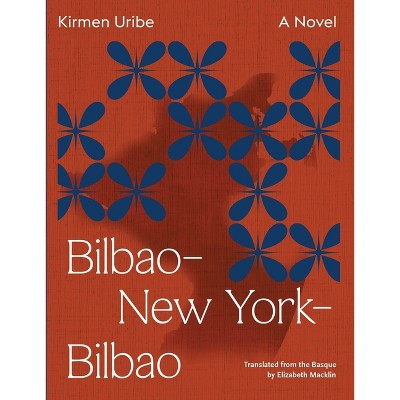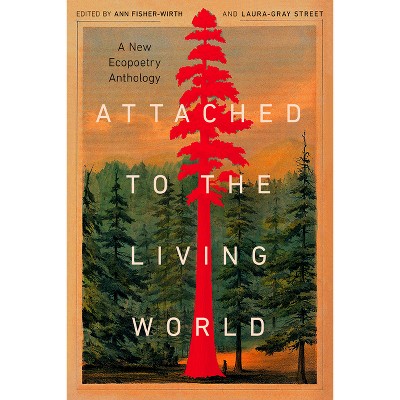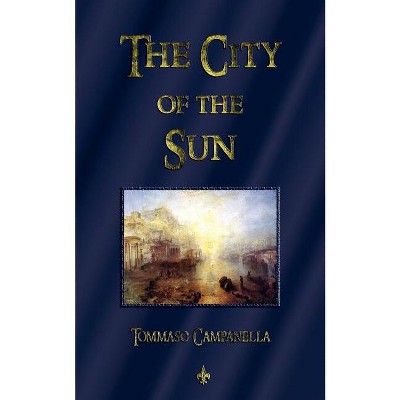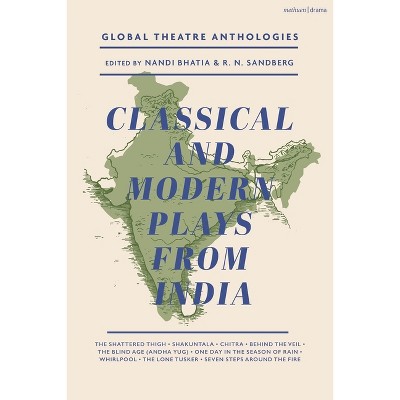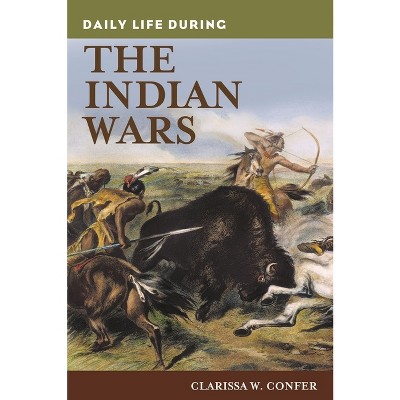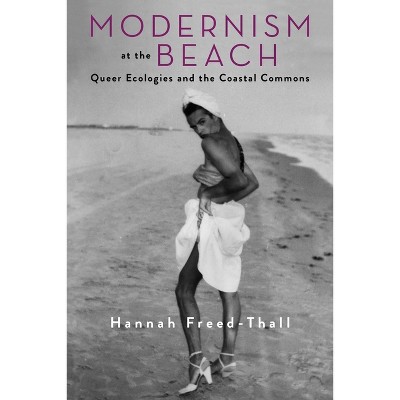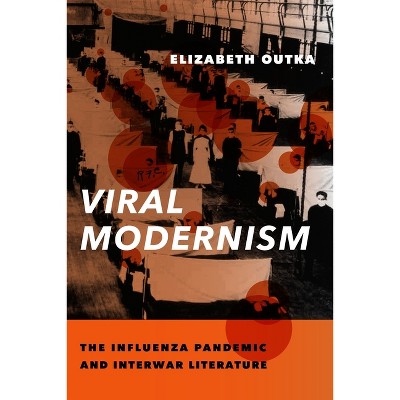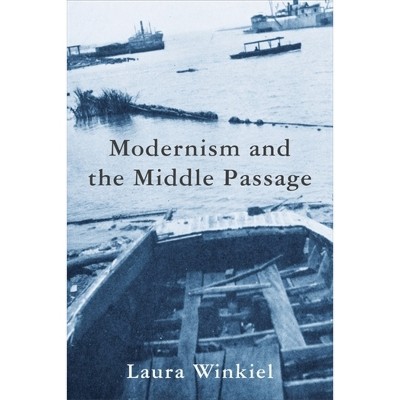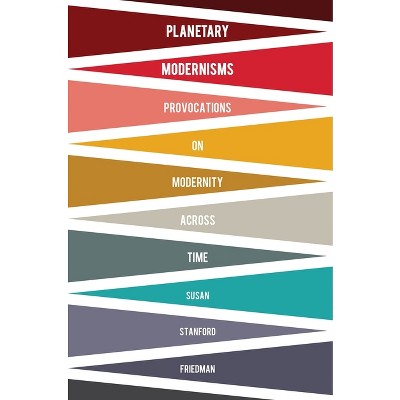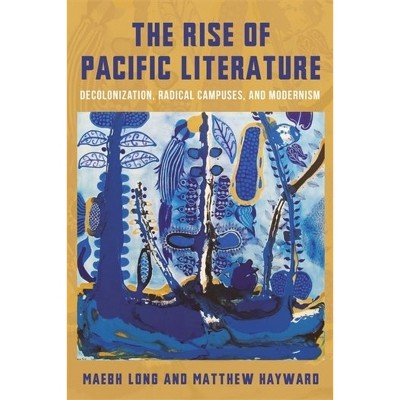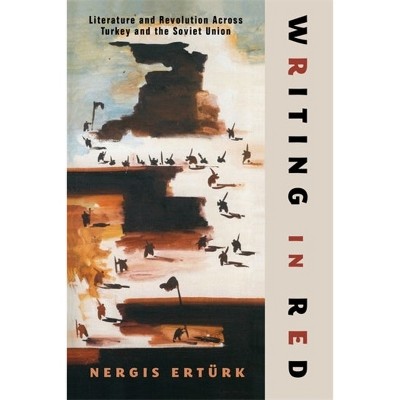Sponsored

Cosmo-Modernism and Theater in India - (Modernist Latitudes) by Aparna Bhargava Dharwadker
In Stock
Sponsored
About this item
Highlights
- Urban theater took shape in postindependence India as a large and complex field produced in more than sixteen major languages, including Bengali, Marathi, Hindi, Gujarati, and Kannada.
- About the Author: Aparna Bhargava Dharwadker is professor of English and interdisciplinary theater studies at the University of Wisconsin-Madison.
- 352 Pages
- Literary Criticism, Modern
- Series Name: Modernist Latitudes
Description
About the Book
Aparna Bhargava Dharwadker develops a new framework for understanding non-Anglophone Indian modernisms, analyzing the writing, staging, and reception of major plays in multiple languages.Book Synopsis
Urban theater took shape in postindependence India as a large and complex field produced in more than sixteen major languages, including Bengali, Marathi, Hindi, Gujarati, and Kannada. The cosmopolitan engagement of leading playwrights with modernist and postcolonial literary movements around the world created distinctly new aesthetic and political approaches to Indian myth, history, and sociocultural experience, which had become the most prominent subjects in modern Indian drama. Yet even as critics and scholars of global modernism have increasingly turned their attention beyond North America and Europe, they continue to focus on dominant world languages at the expense of multilingual cultures such as India's. Despite their originality and significance, modernist works written in Indian languages other than English remain neglected.
In Cosmo-Modernism and Theater in India, Aparna Bhargava Dharwadker develops a new framework for understanding non-Anglophone Indian modernisms by recovering crucial theoretical concepts and using them to analyze the writing, staging, and reception of major plays in multiple languages. She argues that the output of prominent mid- to late-twentieth-century playwrights such as Dharamvir Bharati, Mohan Rakesh, Badal Sircar, Vijay Tendulkar, Girish Karnad, and Habib Tanvir registers a decisive rupture from nineteenth-century forms of colonial modernity. In representing the ancient Indian past, the postcolonial urban present, and the rich repertoire of precolonial performance traditions, these authors' works became highly inventive expressions of modernist classicism, realism, and traditionalism. Dharwadker shows how a decommercialized performance economy and the incessant activity of translation further enhanced modernist production, and she connects Indian modernisms to regional, national, and transnational networks. Offering bold new insights into the theory and practice of modernist drama, this book delivers a radical remapping of global modernisms.Review Quotes
In this deeply researched book, Dharwadker takes the Indian theater as her case study to reconsider the modernist paradigm of cosmopolitanism. Tracing an intranational network of interlingual exchange, she shows how modern drama in India gave voice to a multilingual modernism that exceeded its postcolonial condition by asserting a polyvocal aesthetic and cultural identity from page to stage to reception.--Julia A. Walker, professor of English and drama, Washington University in St. Louis
Informed by deep scholarship across a range of different fields, Dharwadker's book presents an innovative and erudite theory of Indian modernism as an influential literary formation with its own distinctive features. Cosmo-Modernism and Theater in India represents an important contribution to the increasing focus on Indian modernism within postcolonial and world literature studies.--Neelam Srivastava, professor of postcolonial and world literature, Newcastle University
About the Author
Aparna Bhargava Dharwadker is professor of English and interdisciplinary theater studies at the University of Wisconsin-Madison. Her books include Theatres of Independence: Drama, Theory, and Urban Performance in India Since 1947 (2005) and A Poetics of Modernity: Indian Theatre Theory, 1850 to the Present (2019), both of which received the biannual Joe A. Callaway Prize for the best book on theater.Shipping details
Return details
Trending Books for all Ages



